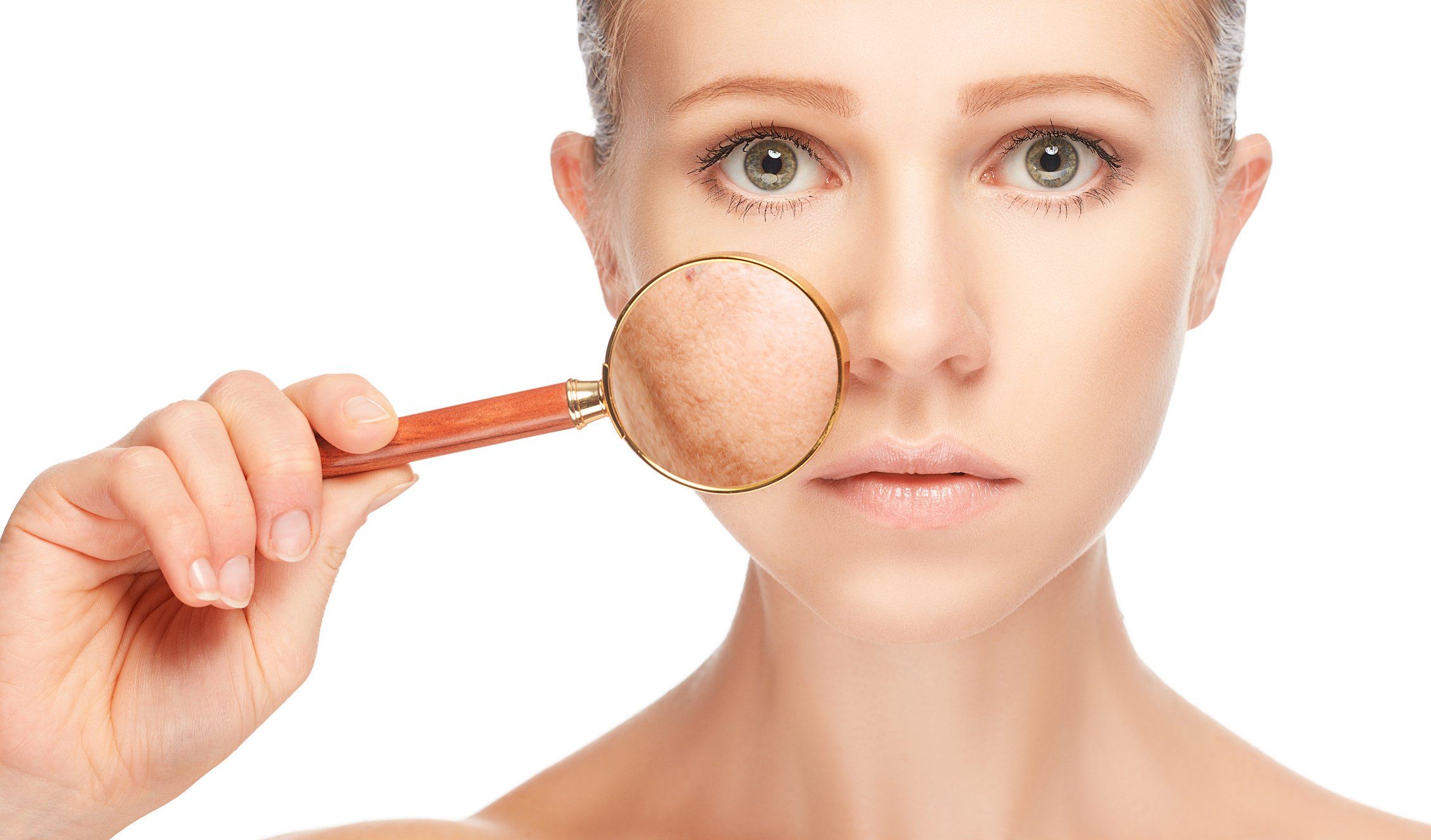
Hyperpigmentation is a common skin condition that causes dark spots or patches to appear on the skin, making it a concern for many people worldwide. While it’s not usually harmful, hyperpigmentation can lead to uneven skin tone and reduced confidence in one’s appearance. Fortunately, there are effective treatments available to help manage the condition, especially in major cities like Delhi, where advanced skincare solutions are easily accessible. This blog will explore the causes of hyperpigmentation, its symptoms, and the various remedies and treatments available, including Hyperpigmentation Treatment in Delhi.
What is Hyperpigmentation?
Hyperpigmentation occurs when there is an excess production of melanin, the pigment responsible for the color of your skin, hair, and eyes. Melanin is produced by specialized skin cells known as melanocytes. When these cells produce too much melanin, it leads to the formation of dark spots or patches on the skin, often appearing darker than the surrounding areas.
While hyperpigmentation can appear anywhere on the body, it is most commonly seen on the face, hands, shoulders, and neck. The condition can affect people of all skin tones, but it tends to be more noticeable in individuals with darker skin.
Causes of Hyperpigmentation
Several factors contribute to the development of hyperpigmentation. Understanding these causes can help in preventing or reducing its occurrence.
1. Sun Exposure
Prolonged sun exposure is one of the primary causes of hyperpigmentation. The ultraviolet (UV) rays from the sun trigger the production of melanin as a protective mechanism to prevent skin damage. However, excessive sun exposure can lead to the formation of sunspots or age spots, which are a type of hyperpigmentation.
2. Post-Inflammatory Hyperpigmentation (PIH)
This type of hyperpigmentation occurs after an injury or skin irritation, such as acne, eczema, or even a minor cut. When the skin heals, it may leave behind dark spots or patches that can last for weeks or months. PIH is more common in individuals with darker skin tones and can be triggered by inflammatory conditions or excessive scratching.
3. Hormonal Changes
Hormonal fluctuations, particularly during pregnancy or while taking birth control pills, can lead to a type of hyperpigmentation called melasma. Melasma is characterized by brown or grayish patches on the face, typically on the cheeks, forehead, and upper lip. It’s most commonly seen in women and is often triggered by hormonal changes due to pregnancy or the use of birth control pills, making it known as the “mask of pregnancy.”
4. Medications
Certain medications, such as oral contraceptives, chemotherapy drugs, or hormone replacement therapies, can cause changes in melanin production, leading to hyperpigmentation. These medications may make the skin more sensitive to sunlight, increasing the likelihood of developing dark spots.
5. Genetics
Genetic factors can also play a role in hyperpigmentation. Some people may have a family history of the condition, making them more prone to developing dark spots or patches on the skin. Individuals with darker skin tones tend to be more susceptible to hyperpigmentation.
6. Aging
As we age, our skin undergoes various changes, including the formation of dark spots or age spots, which are a type of hyperpigmentation. These spots, also known as liver spots, often develop due to years of sun exposure. Aging skin is also less efficient at regenerating new skin cells, which can exacerbate the appearance of hyperpigmentation.
Symptoms of Hyperpigmentation
The primary symptom of hyperpigmentation is the appearance of dark spots or patches on the skin. These spots can vary in size and shape and may appear on the face, hands, neck, and other exposed areas of the body. The color of the spots can range from light brown to dark brown or even black.
While the condition is usually not painful, some individuals may experience irritation, itching, or discomfort, particularly if the hyperpigmentation is the result of an underlying skin issue, such as acne or eczema.
Remedies and Treatments for Hyperpigmentation
There are various remedies and treatments available to help reduce the appearance of hyperpigmentation. These can range from at-home remedies to professional treatments that require the expertise of a dermatologist. Here are some common options:
1. Topical Creams and Serums
Over-the-counter creams and serums containing ingredients like hydroquinone, vitamin C, glycolic acid, and retinoids are often used to lighten hyperpigmented areas. These ingredients work by inhibiting melanin production, exfoliating the skin, or promoting cell turnover to reduce the appearance of dark spots.
- Hydroquinone: A bleaching agent that helps lighten dark spots by inhibiting melanin production.
- Vitamin C: An antioxidant that helps brighten the skin and reduce discoloration.
- Glycolic Acid: An alpha hydroxy acid (AHA) that exfoliates the skin and helps fade dark spots.
- Retinoids: Compounds that promote cell turnover and reduce the appearance of dark spots.
2. Chemical Peels
Chemical peels involve the application of a solution to the skin, which causes the outer layer to peel off, revealing fresh, new skin underneath. These peels help improve skin texture, fade dark spots, and even out skin tone. Depending on the severity of hyperpigmentation, a dermatologist may recommend superficial, medium, or deep chemical peels.
3. Laser Treatments
Laser treatments, such as fractional CO2 lasers, intense pulsed light (IPL), and Q-switched lasers, are effective options for treating hyperpigmentation. These treatments target melanin and help break down the pigment in the skin. Laser treatments can be highly effective, especially for stubborn dark spots that do not respond to topical treatments. If you’re considering laser treatment, Hyperpigmentation Treatment in Delhi offers advanced laser therapy options with experienced dermatologists.
4. Microneedling
Microneedling involves tiny needles that create micro-injuries in the skin, stimulating collagen production and improving skin texture. It can help lighten hyperpigmented areas by promoting skin regeneration. Microneedling can be particularly effective for post-inflammatory hyperpigmentation (PIH) caused by acne.
5. Sunscreen
One of the most important steps in managing and preventing hyperpigmentation is applying sunscreen regularly. UV rays can worsen hyperpigmentation and cause existing dark spots to become more prominent. It’s essential to use a broad-spectrum sunscreen with SPF 30 or higher to protect your skin from sun exposure. Sunscreen helps prevent new dark spots from forming and minimizes the appearance of existing ones.
6. Diet and Lifestyle
Maintaining a healthy diet rich in antioxidants can help promote skin health and reduce the effects of hyperpigmentation. Foods high in vitamin C, such as citrus fruits, berries, and leafy greens, can help brighten the skin. Additionally, staying hydrated and avoiding smoking can contribute to healthier, more even skin tone.
Hyperpigmentation Treatment in Delhi
Delhi is home to some of the leading dermatologists and skincare centers offering specialized Hyperpigmentation Treatment in Delhi. These clinics provide advanced treatments like laser therapy, chemical peels, microneedling, and prescription-strength topical treatments to effectively address hyperpigmentation. Dermatologists in Delhi also offer personalized treatment plans based on your skin type and the severity of your hyperpigmentation, ensuring optimal results.
Whether you’re dealing with sunspots, melasma, or post-inflammatory hyperpigmentation, seeking professional care can significantly improve the appearance of your skin. Dermatologists in Delhi are equipped with the latest technology and expertise to help you achieve a more even and radiant complexion.
Conclusion
Hyperpigmentation is a common but manageable skin condition that can affect anyone, regardless of age or skin type. While it can be frustrating, there are numerous treatments available that can help reduce dark spots and even out your skin tone. From topical creams to advanced treatments like laser therapy and microneedling, there are options to suit every individual’s needs.
For those seeking Hyperpigmentation Treatment in Delhi, you have access to some of the best dermatologists and skincare experts who can provide tailored solutions for your skin. By following a proper skincare regimen and seeking professional treatment, you can successfully manage hyperpigmentation and enjoy clearer, healthier skin.






